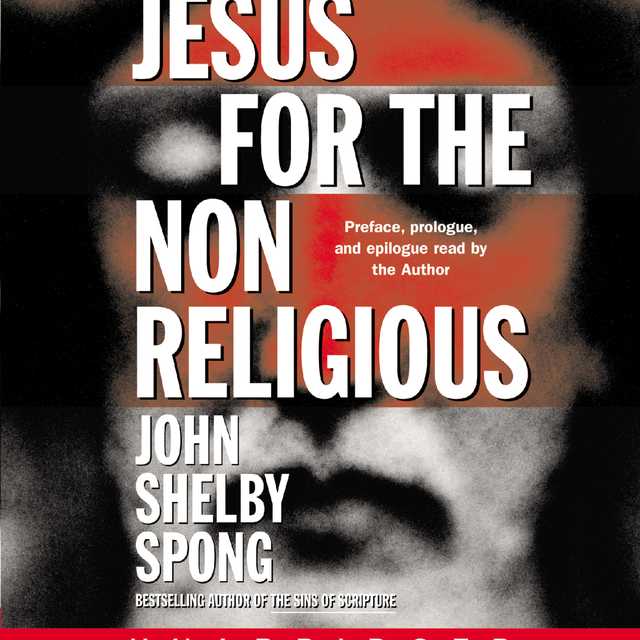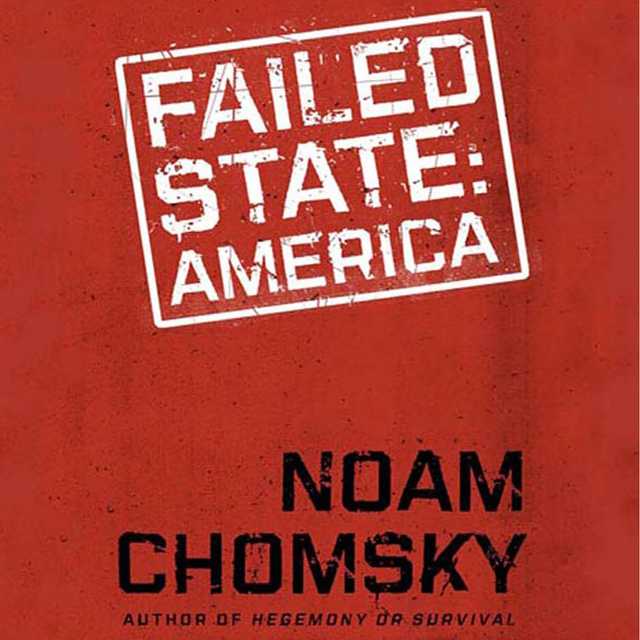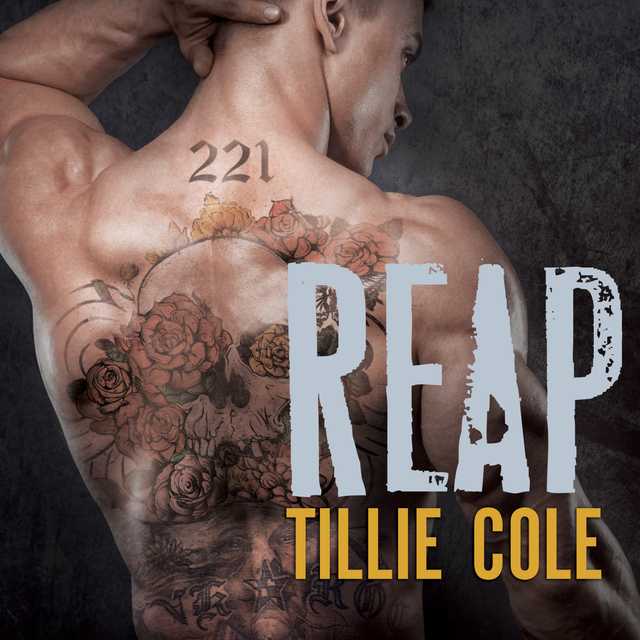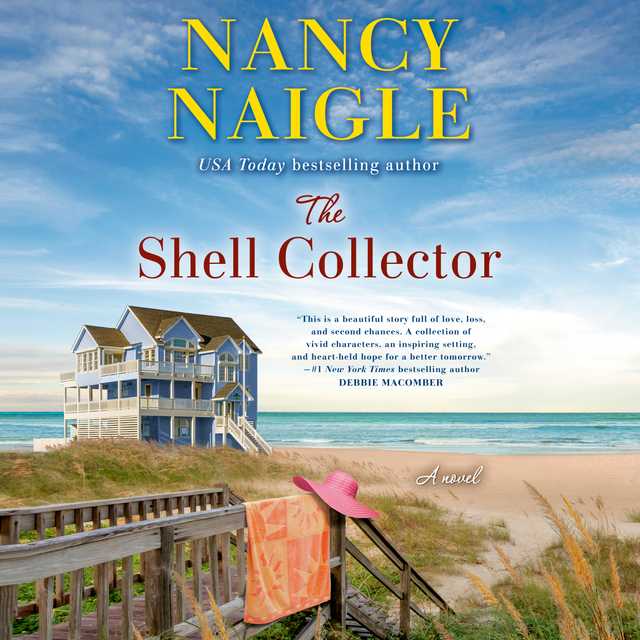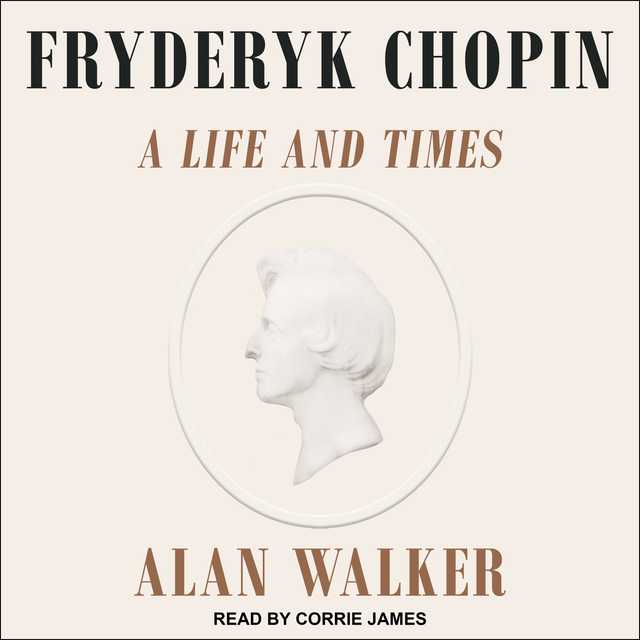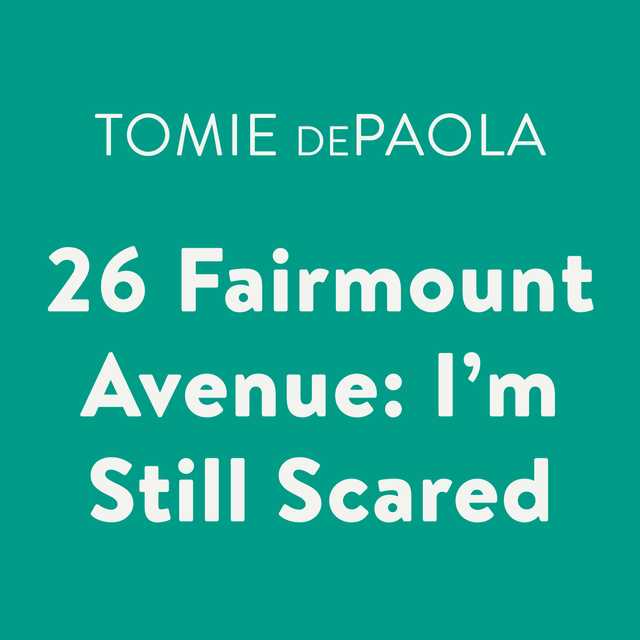Jesus for the Non-Religious Audiobook Summary
Writing from his prison cell in Nazi Germany in 1945 Dietrich Bonhoeffer, a young German theologian, sketched a vision of what he called “Religionless Christianity.” In this book, John Shelby Spong puts flesh onto the bare bones of Bonhoeffer’s radical thought. The result is a strikingly new and different portrait of Jesus of Nazareth, a Jesus for the non-religious.
Spong challenges much of the traditional understanding, from the tale of Jesus’ miraculous birth to the account of his cosmic ascension into the sky. He questions the historicity of the ideas that Jesus was born in Bethlehem, that he had twelve disciples, or that the miracle stories were ever meant to be descriptions of supernatural events. He also speaks directly to those critics of Christianity who call God a “delusion” and who describe how Christianity has become evil and destructive.
Spong invites his readers to look at Jesus through the lens of both the Jewish scriptures and the liturgical life of the first century synagogue. He proposes a new way of understanding the divinity of Christ as the ultimate dimension of a fulfilled humanity. Jesus for the Non-Religious may be the book that finally brings the pious and the secular into a meaningful dialogue, opening the door to a living Christianity in the post-Christian world.
Read by Alan Sklar
Preface, prologue, and epilogue read by the Author
Other Top Audiobooks
Jesus for the Non-Religious Audiobook Narrator
Alan Sklar is the narrator of Jesus for the Non-Religious audiobook that was written by John Shelby Spong
About the Author(s) of Jesus for the Non-Religious
John Shelby Spong is the author of Jesus for the Non-Religious
More From the Same
- Author : John Shelby Spong
- Unbelievable
- Eternal Life: A New Vision
- The Fourth Gospel
- Biblical Literalism
- Publisher : HarperAudio
- Abraham
- American Gods [TV Tie-In]
- Dead Ringer
- House of Sand and Fog
- Prey
Jesus for the Non-Religious Full Details
| Narrator | Alan Sklar |
| Length | 12 hours 21 minutes |
| Author | John Shelby Spong |
| Category | |
| Publisher | HarperAudio |
| Release date | February 27, 2007 |
| ISBN | 9780061262555 |
Subjects
The publisher of the Jesus for the Non-Religious is HarperAudio. includes the following subjects: The BISAC Subject Code is Biblical Criticism & Interpretation, New Testament, Religion
Additional info
The publisher of the Jesus for the Non-Religious is HarperAudio. The imprint is HarperAudio. It is supplied by HarperAudio. The ISBN-13 is 9780061262555.
Global Availability
This book is only available in the United States.
Goodreads Reviews
Caroline
May 09, 2019
I found Spong's book fascinating... His Bible scholarship seems impressive. I say 'seems' because I am no-one to judge. I have never really studied the Bible, even in a 'keen church-goer' fashion. Even so, I was very impressed by his arguments that Jesus's miracles, and miraculous experiences (like the resurrection), were based on the efforts of his followers to make him fit the description of the Jewish messiah. His followers were I think all Jewish.... They deeply admired the goodness of Jesus and they wanted him to be the divine son of God. In the 70 or so years following his death, and before the New Testament was written, they pushed and pulled the story of Jesus to fit in with contemporary Jewish ideas about what being the messiah involved.Spong pulls away at the miracles and miraculous, and the trappings that early Christianity ascribed to Jesus. In the end he just leaves us with the goodness of the man - more than anything with his wonderful embracing of difference, and his message of love and inclusivity. During the course of the book Spong touched upon many issues with Christianity that have bothered me too. I was surprised how much I felt a sense of loss. He is very critical of the basic Christian myth - and I know it bothers a lot of people (the idea of a God who sacrifices his son in order that we shall be forgiven our sins), but for some reason it's a myth I find deeply moving. I think this is in part because I was so deeply smitten with CS Lewis books - both his Narnia series and some of his books for adults that I have read. There is also the fact that various people I have loved and respected - like my grandparents - were committed Christians. It's a culture that has woven into my life on so many different levels.Having said that - nearly all of Spong's dismantling in this book made sense to me. Unlike him though I was not left with an overwhelming love for the person we call Jesus. I can look round me and see all sorts of people who I feel exemplify outstanding goodness. To me, Jesus is one among many...and in fact in my life I am more familiar with the stories of other heroes.I'm glad I read this book - I feel that it has made a constructive segment in my journey....but Spong's reinterpretation of Christianity is not the way forward for me.
Lee
June 09, 2012
The phrase "spiritual but not religious" has become such a common description that an acronym has developed: SBNR. Are you an SBNR? I'm not. As much as I want to belong, it doesn't really describe me. I'm more of a JBNR guy (Jesus but not religious). Jesus' dream of a kingdom of heaven on earth, and his humanitarian solution for inaugurating that kingdom, is my inspiration. I love church buildings, I love music, and I especially love church music, but when it comes to the real Jesus, he's hardly limited to four stone walls, no matter how pretty the stained glass.When Spong's book hit the shelves five years ago, I snapped it up. Yes, he repeats a lot of his Jesus scholarship from earlier books, but reading Spong has become for me a comfort as much as a learning experience. It's like coming home, digging down to the real Jesus, and lifting the weight off my shoulders of having to "believe" stuff. I'm not real good at believing, and religion seems to promote acceptance of the incredulous as some sort of Godly virtue, leaving me out in the cold.Spong's Jesus wasn't born under a star, didn't walk on water, and never literally raised the dead. He points out that the first followers of Jesus were not called Christians, as if knowing Christ was their goal; rather, they called themselves "the followers of the way," as if Jesus was himself but part of the journey. Yet Spong's admiration for Jesus shines, and he embraces the "original images" of Jesus with their symbolism and honor. He just doesn't get hung up on literalism. Two hundred pages into the book, after discarding our unnecessary beliefs, Spong is ready to reintroduce Jesus for the non-religious, and he does so systematically:Jesus really lived, and Jesus loved God. Jesus' dream of a God-controlled world turned him into a breaker of tribal boundaries, prejudices, stereotypes, even religious boundaries. Jesus embraced God's desire to heal the world. The cross became a human portrait of the love of God.God, says Spong at the close of his book, is encountered in the "profoundly human Jesus."
Elizabeth
July 21, 2012
I'm giving this book 5 stars not because it was flawlessly written (it wasn't) or immaculately researched (not sure), but because it's one of the most provocative things I've ever read. You don't expect an Episcopal Bishop to systematically deconstruct everything we know about the Christian religion and still proclaim himself to be a follower of Jesus, but that's exactly what Spong does here. While this book is ostensibly about Jesus, it's more broadly a call for a progressive Christianity that has nothing to do with miracles and dogma, and everything to do with following Jesus' example of love and humanity. I haven't been a Christian for over 15 years and am not familiar with Biblical scholarship, so it's entirely possible that these discussions are commonplace, or that my review of the book is naive or uninformed. But I found this book eye-opening and inspiring.
Brian
January 26, 2021
Spong reads the gospels, not looking for facts, but for signs of how the story tellers were changed. What defensive walls, fears, hypocrisies or self-centered views of life were blown down by encounters with Jesus?In pursuing this kind of encounter, Spong traces almost every phrase or image in the gospels back to the Old Testament scriptures, from which they were composed, often word for word. I've never seen such a detailed exposure of how the Jesus stories were literally written "according to the [Hebrew] scriptures."Where does all this lead? Strangely enough, the exposure of Jewish roots recovers Jesus' challenge to the people of his times. It exposes the impact of his life to ordinary people of that culture, and shows what that impact might be for our utterly different global civilization.
Nancy
January 25, 2011
Long ago (I think because of Oprah) I learned about John Shelby Spong, an episcopalian priest who wrote about Christianity in ways that interested me. Most importantly, ee seemed not to be about a literal interpretation of the Bible. I sought out his work, reading (I think) "The Easter Moment," a piece in which he argues that something powerful must have happened during Easter, something so powerful that it changed the way some Jewish people at the time lived. Recently, I read more Spong, his work about immortality, "Eternal Life: A New Vision: Beyond Religion, Beyond Theism, Beyond Heaven and Hell." I found it to be a tedious, boring polemical piece in which Spong argues that we must think about mortality beyond what we know already.So, I came to "Jesus for the Non-Religious" with some conflict: Spong is interesting but not so much lately. Reading "Jesus for the Non-Religious" reaffirms my interest and respect for Spong, a man willing to reconsider the prevailing sentiments about Jesus....that he was able to work miracles, that he was God incarnate, that he physically rose during the resurrection.Spong posits Jesus as a product of Hebrew scripture that would have been a part of the world in which he lived. The Jesus we often learn about as the child of a virgin, as a man who parted the Red Sea, as the "Lamb of God" was all those things because those who wrote about him used existing Hebrew scripture---the God language they had---to try to capture the essence of a man who embodied humanity by the way he lived. Spong's thesis, which he supports with detailed Biblical references, is engaging, provocative and maybe even revolutionary, something I remember thinking when I first read his work. I highly recommend "Jesus for the Non-Religious."
Jared
February 22, 2019
John Shelby Spong’s Jesus for the non-religious is gasoline for liberals and a wet blanket for religious conservatives. Of course these terms are subjective, and vague, presuming a simplicity to these dichotomous ideologies. Yet, this is the state of opposing views when it comes to Christianity. Spong therefore seeks to liberate Jesus from political agenda, so humans can live the Jesus ‘experience’. Now, a retired Anglican Bishop, Spong abandons orthodoxy, in rejecting the virgin birth, a literal interpretation of the resurrection and miracles, to name a few. Can one still call themselves a Christian and hold to these beliefs? That, is Spong’s hook to the line he casts. These Gospel accounts, act as liturgies for Spong, and were never meant to be taken literally. Furthermore, he suggests a new Christianity, one that is free from tradition and institutionalised modes of faith. What Bonhoeffer would call, ‘religionless Christianity’. In Culture and the Death of God, Terry Eagleton comments on nationalism’s unholy matrimony with religion, citing the union as each being corrupted by the other. Where religion was a pursuit of faith and connection with the divine, nationalism drew on its Constantinian roots. Similarly, Jesus must be divorced from the matrimonial institution that keeps his followers devoted but not connected. While Spong’s views are quite liberal, his goal is a more open view of faith. He redefines theistic terms to infer his own meaning, and while the beginning of his book loosely dives into the historical Jesus, the second half is a passionate plea towards an inclusive gospel. Where the first half of the book seeks to re-define, re-imagine and re-construct Jesus, the second is a plea to Christians to believe in this re-definition. I do not recommend this book for everyone, but I would recommend it for some. I personally enjoyed Spong’s desire for something deeper than historical Jesus studies, but I am not convinced by him.
Steve
February 12, 2018
Certainly offers a lot to think about ...Spong spends a great deal of time first demolishing mythology around Jesus, then explaining how it might have arisen out of Jewish theology, then attempting to explain what it may have been about Jesus that made people want to worship and mythologize him in the first place.I imagine many readers will be upset about the de-mythologizing, while others will be upset about the assertion that Jesus was, in fact, an historical figure. Still others will scratch heads at Spong’s belief that something indeed mighty and miraculous at the heart of the crucifixion account may have inspired great life-changing attitudes in his followers.Much of what Spong covers here is similar to his other books. Indeed, I skimmed over some sections because the arguments were familiar to me. I did, however, appreciate a look at all this through the eyes of someone who has clearly thought hard about it — and I stand by my own belief that all theology is amateur theology. I don’t think we are ever destined to really KNOW.
Ron
December 27, 2010
About 2/3 into listening to the audio book. Interesting. Informative treatment of contrasting liturgy with focus on historicity of the early formation of the Judeo-Christian movement. Update: Just finished audio book. Found several books by him at the local library, but am choosing to take the easy(?) way of listening before chosing what to read. Have enjoyed his distinction between knowing Jesus as an exclusivistic experience and as a liberating all-inclusive portal to the I Am. His style seems to be a bit preachy and pedantic, but maybe that's because I've collectively listened to 12 hrs of narration from his book and feel like intellectual alphabet soup is overflowing from my brain and spilling out of my ears. Anyway, I enjoyed his wide-open hell (pardon the expression) bent for leather, shoot from the hip approach. I found his last 2-3 chapters to be his strongest and to be his clearest statement of what he is advocating.
Izzie
February 24, 2009
Enlightening! John Shelby Spong, through this book, introduced an inspiring way of viewing Jesus in this modern world we live in today. It has me thrilled and excited about the future of the Christian church, which I believe is craving just such a spiritual breakthrough during this age. Excellent reading.
Adele
August 27, 2015
Very interesting. Life changing for my husband who had a Christian upbringing. It made me realise that the truly spiritual in the world (and maybe everyone at some level) are all looking for the same thing and that the Christian God is just the same as "universal consciousness" or whatever else you want to call it.
Becci
December 23, 2008
This is a very challenging book--I read dit slowly to try to absorb and ponder his ideas. Spong strips away old "beliefs" about the Biblical message before he attempts to reconstruct the life of the historical Jesus.
Frequently asked questions
Listening to audiobooks not only easy, it is also very convenient. You can listen to audiobooks on almost every device. From your laptop to your smart phone or even a smart speaker like Apple HomePod or even Alexa. Here’s how you can get started listening to audiobooks.
- 1. Download your favorite audiobook app such as Speechify.
- 2. Sign up for an account.
- 3. Browse the library for the best audiobooks and select the first one for free
- 4. Download the audiobook file to your device
- 5. Open the Speechify audiobook app and select the audiobook you want to listen to.
- 6. Adjust the playback speed and other settings to your preference.
- 7. Press play and enjoy!
While you can listen to the bestsellers on almost any device, and preferences may vary, generally smart phones are offer the most convenience factor. You could be working out, grocery shopping, or even watching your dog in the dog park on a Saturday morning.
However, most audiobook apps work across multiple devices so you can pick up that riveting new Stephen King book you started at the dog park, back on your laptop when you get back home.
Speechify is one of the best apps for audiobooks. The pricing structure is the most competitive in the market and the app is easy to use. It features the best sellers and award winning authors. Listen to your favorite books or discover new ones and listen to real voice actors read to you. Getting started is easy, the first book is free.
Research showcasing the brain health benefits of reading on a regular basis is wide-ranging and undeniable. However, research comparing the benefits of reading vs listening is much more sparse. According to professor of psychology and author Dr. Kristen Willeumier, though, there is good reason to believe that the reading experience provided by audiobooks offers many of the same brain benefits as reading a physical book.
Audiobooks are recordings of books that are read aloud by a professional voice actor. The recordings are typically available for purchase and download in digital formats such as MP3, WMA, or AAC. They can also be streamed from online services like Speechify, Audible, AppleBooks, or Spotify.
You simply download the app onto your smart phone, create your account, and in Speechify, you can choose your first book, from our vast library of best-sellers and classics, to read for free.
Audiobooks, like real books can add up over time. Here’s where you can listen to audiobooks for free. Speechify let’s you read your first best seller for free. Apart from that, we have a vast selection of free audiobooks that you can enjoy. Get the same rich experience no matter if the book was free or not.
It depends. Yes, there are free audiobooks and paid audiobooks. Speechify offers a blend of both!
It varies. The easiest way depends on a few things. The app and service you use, which device, and platform. Speechify is the easiest way to listen to audiobooks. Downloading the app is quick. It is not a large app and does not eat up space on your iPhone or Android device.
Listening to audiobooks on your smart phone, with Speechify, is the easiest way to listen to audiobooks.

